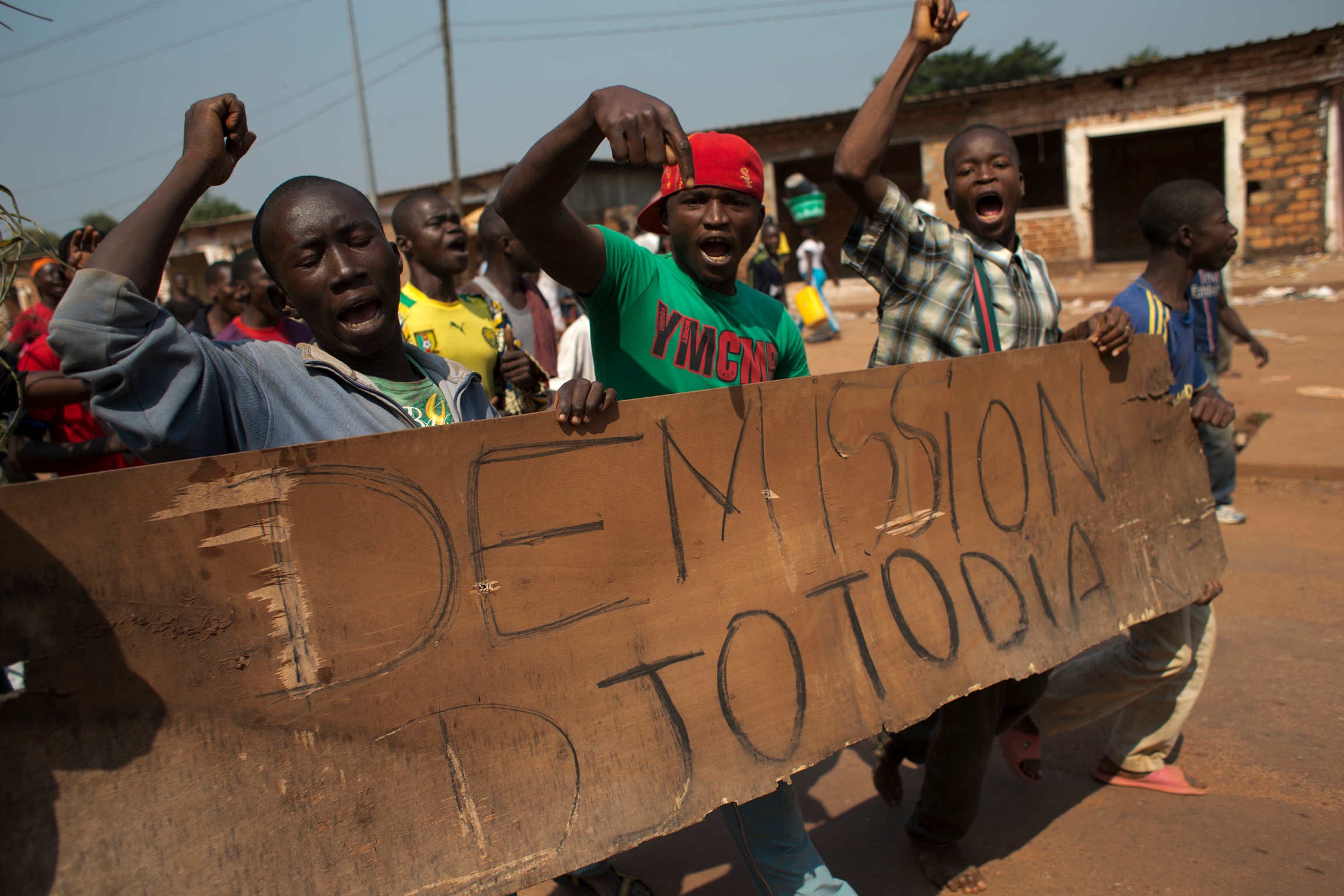
Editor's Note: This op-ed originally appeared on Al Jazeera America.
The Central African Republic’s interim president and rebel leader, Michel Djotodia, was forced to resign today at a two-day summit in the Chadian capital, Ndjamena. Djotodia, who seized power through a violet coup last march, has been under immense pressure by former colonial power France and the regional kingmaker Chad for failing to stop bloodshed and establish order in the Central African Republic (CAR).
Until recently, very few Americans had reason to pay attention to the CAR, an impoverished, landlocked country about the size of Texas with 4.4 million people. Shocking reports of mass killings and beheadings of children have opened a small window into the CAR’s most recent upheaval. Unfortunately, the international press has not provided a full and accurate view of the conflict. Observers are explaining the violence in terms of religious polarization between Muslims and Christians. While some of the killings are indeed motivated by religious identity, casting the conflict as principally religious oversimplifies a complex crisis and risks further polarization of an already divided society.
Institutional decay
The CAR has been a scene of both domestic instability and international neglect. It has seen five military coups and several rebellions since gaining independence from France in 1960. In 1966, Jean-Bedel Bokassa — a self-proclaimed emperor and president for life — deposed David Dacko, the country’s first president, and instituted a rule that was emblematic of the hyperpatrimonial African dictators of 1960s and ’70s. The decades that followed brought more military misrule, shallow democratization and a hollowing out of the state, which put the CAR on a downward development spiral. As a result, despite its mineral riches, the country stagnates near the bottom of the U.N. Human Development Index, which measures the level of development around the world using economic and social data. The CAR ranks 180th out of 186 countries on the index.
Years of institutional decay have left most Central Africans at the state’s margins, creating fertile ground for recurrent rebellion and violent coups. But the CAR crisis is not simply the result of domestic failures. External actors have repeatedly destabilized the country by exploiting its institutional weakness and political fault lines. France has consistently influenced political events in the CAR. On several occasions, it deployed French military forces to restore order, to safeguard its economic interests and install friendly regimes. Similarly, in order to serve their economic and regional security interests, neighboring Chad and Sudan had an equally long history of meddling in the CAR’s political affairs through direct military intervention and political support for warring factions. In 2003, Chad deployed soldiers from the elite presidential guard to help its erstwhile ally Francois Bozize overthrow President Ange-Felix Patasse, bringing an end to 10 years of relatively democratic rule — the first relatively stable regime in the CAR’s history.
Last March, the Seleka rebels, a 16-month-old coalition of five rebel groups from the marginalized northern part of the country, supported by mercenary fighters from Sudan and Chad, ousted Bozize without much effort. In a few months, the rebels threw out Bozize’s weak authoritarian regime. But the Seleka did not achieve total victory. To make matters worse, after remaining unrecognized as the CAR’s head of state, Djotodia stepped down amid emerging cracks in his Seleka rebel ranks. The rickety state before the Seleka’s arrival in the capital, Bangui, has now given way to total collapse despite the arrival of French troops and African Union peacekeepers.
Simplistic narrative
Out of this collapse emerges an easy-to-understand story of sectarian violence that pits “Muslim” Seleka rebels against “Christian” self-defense groups. To be sure, distilling complex phenomena down to a few components is journalism’s stock in trade. And the CAR fits a familiar formula — another frothing shambles on the Dark Continent giving in to its supposed primordial violent urges, creating vast numbers of refugees in need of international aid.
The problem here is not so much that these depictions confirm stereotypes of Africa. Of course they do. And it’s not even the intellectual laziness of the comfortable Muslims-versus-Christians narrative. The problem is that these stories risk fueling sectarian violence in a country where, historically, Muslims and Christians have coexisted in relative peace. They also obscure the underlying causes of multiple, overlapping conflicts and their solutions. Ending the “religious” fighting is a minor part of any strategy that would create long-term stability in the CAR.
Christopher Day is an Assistant Professor of Political Science at the College of Charleston.
Kasper Agger is a Uganda based Field Researcher with the Enough Project.
Read the full op-ed on Al Jazeera America.
Photo: Protestors carry a sign reading 'Resign Djotodia,' as they march to call for the president's resignation and the expulsion of Chadian peacekeepers in Bangui, Central African Republic (AP)

